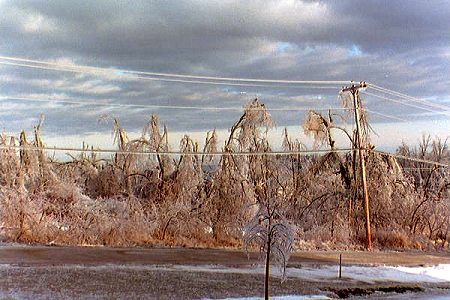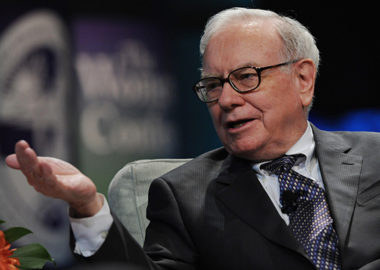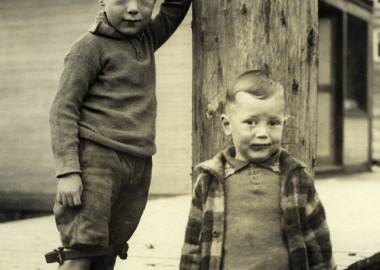
If you’re anything like us, you’ll be glad to see “unprecedented” take a long overdue, well-deserved vacation sometime soon. The “U” word has been doing overtime in 2020—the go-to adjective for politicians, business leaders, and media pundits at a sudden loss for them.
But often when we talk about unprecedented times, we are, in fact, overlooking our own history. In many organizations, people who’ve been there for years will be the first to say: This has happened before. Maybe not a pandemic exactly, but a business-altering event that shook confidence from the c-suite to the stockroom. We can, and should, be guided by these examples.

The inflection point comes at different times for different economic actors. The 1998 ice storm, which devastated eastern Ontario and Quebec, threw millions out of work and forced certain industries (like Quebec’s maple syrup producers) to consolidate. The financial crisis of 2008-09, meanwhile, upended decades-long rules around banking and finance—especially in the U.S. and Europe, where the impact was greatest. There’s little doubt that this pandemic will have far-reaching effects for several industries and countless organizations, but if history is any indication, there are lessons to be learned from turbulent times.
That’s one of the key arguments presented by Jeffrey Cohn and U. Srinivasa Rangan in a recent Harvard Business Review article. The authors note that, even before Covid-19, the business world was increasingly “volatile, uncertain, complex and ambiguous”—a quartet of words that the U.S. Army turned into an acronym, VUCA, in the late ‘90s. Post-Cold War, the military had to look at the world differently, as there wasn’t an obviously binary answer to every conflict. Similarly, globalization and technology has upended traditional ways of doing business for many organizations—with Covid-19 set to disrupt our VUCA world even more.
Disruption is scary, and a lot of employees these days are paralyzed by fear: fear of getting sick, yes, but also fear about what the future holds for their job, career, even industry. As Cohn and Rangan see it, CEOs and other senior managers have a duty to help mitigate those fears—in part, by modelling more vulnerable behaviour.
“The incumbent CEO can help rising stars get to the next level by transparently sharing stories of leading amid uncertainty—both successes and failures,” they write. Many of those rising stars have never tasted failure, or handled a true crisis, having been hired and promoted during a period of endless economic expansion. Cohn and Rangan suggest that CEOs, after sharing their war stories, ask those stars how they would have handled the same situation—and how they would have felt. Creating space to embrace vulnerability shows employees how to “develop more situational awareness, a broader perspective, and increased self-control.”
And telling stories is, in part, how you establish enduring corporate myths. Take Procter & Gamble, for instance. In the early 1930s, the consumer goods company was struggling, like every other manufacturer during the Great Depression, to get grocers to stock their products. But P&G realized that people still needed soap. And so, in an ambitious effort to be the go-to soap brand, they developed a system of brand management (which endures to this day)—and rather than cut back on advertising, they doubled-down on it: sponsoring a variety of radio serials, and launching what would become known as soap operas.
As any soap opera aficionado will tell you, the characters that last—through financial ruin, disintegrating marriages, and even apparent death—are the ones full of heart, passion and a sense of history. Sure, there are twists and turns—and tons of heartache along the way—but somehow they beat the odds. While nobody knows how these “unprecedented times” will end, any leader willing to show some vulnerability and share their stories might just come out a hero.
Does your company’s leadership want to embrace storytelling? We’d love to hear from you. Call us at 1.877.777.ECHO (3246) or email us at hello@echostories.com.






